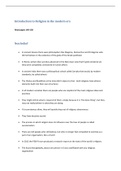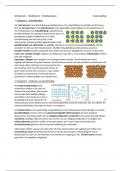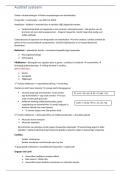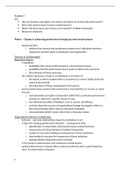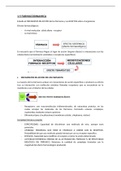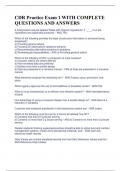Read pages 149-150
Non belief
In ancient Greece there were philosophers like Diagoras, Democritus and Protagoras who
did not believe in the existence of the gods of the Greek pantheon
In Rome, writers like Lucretius advanced in the Epicurean view that if gods existed at all,
they were completely uninvolved in human affairs
In ancient India there was a philosophical school called Carvaka that would, by modern
standards, be called atheist
The Hindus and Buddhists at the time didn’t object to that - both religions have atheist
elements built into their own structures
In all modern societies there are people who are sceptical of the main religious ideas and
practices
They might still do what is required of them, simply because it is “the done thing”, but they
may not really believe in what they are doing
If circumstances allow, they will quietly drop out of religious observances
They have become secular
The process in which religion loses its influence over the lives of people is called
secularization
There are still people who still believe, but who no longer feel compelled to worship as a
part of an organisation, like a church
In 2012 the PEW Forum produced a research report on the state of the world’s religions
The found that globally, about one person in 6 was unafilliated with any religious
organisation
, Secular people may still believe in what their religion teaches
Someone who has been raised as a Christian may still believe in the existence of a god, but
may think that this god does not actually require him or her to go to church on Sundays
Secularization is an indicator of religious activity, or lack of it. It does not measure religious
belief
A secular person is not necessarily an atheist, but an atheist will most certainly live a secular
lifestyle
Atheism - someone who does not believe that gods(s) exists
Agnosticism - people who believe that we cannot be sure whether a god(s) exist or not
Humanism - embraces both atheists and agnostics
Religious people may think that secularization would be bad for public morality, in other
words, that religion is needed to make people behave ethically
In the 20th century, there were states like the USSR that were officially atheist where human
rights abuses were widespread
Countries like Sweden and the Netherlands that are highly secular, but the where crime rate
is extremely low
In the USA today, atheist make up around 10% of the population but only 0.25% of the
prison population
Civil religion - the way a society uses rituals to maintain its cohesiveness and unity such as
public holidays
Civil religion is not exclusive to atheists, but the rise in its importance dates back to the 19th
century, precisely the time when secularization started to take off
Thinkers like Karl Marx, Friedrich Nietzsche and Sigmund Freud presented critiques of
religion from a variety of philosophical and scientific points of view
Marx saw religion as something that a ruling class used to keep the working class in line,
while not necessarily believing in it
Nietzsche sees religion in the light of master-slave morality
Freud regarded it as the result of deeply buried neuroses and anxieties

